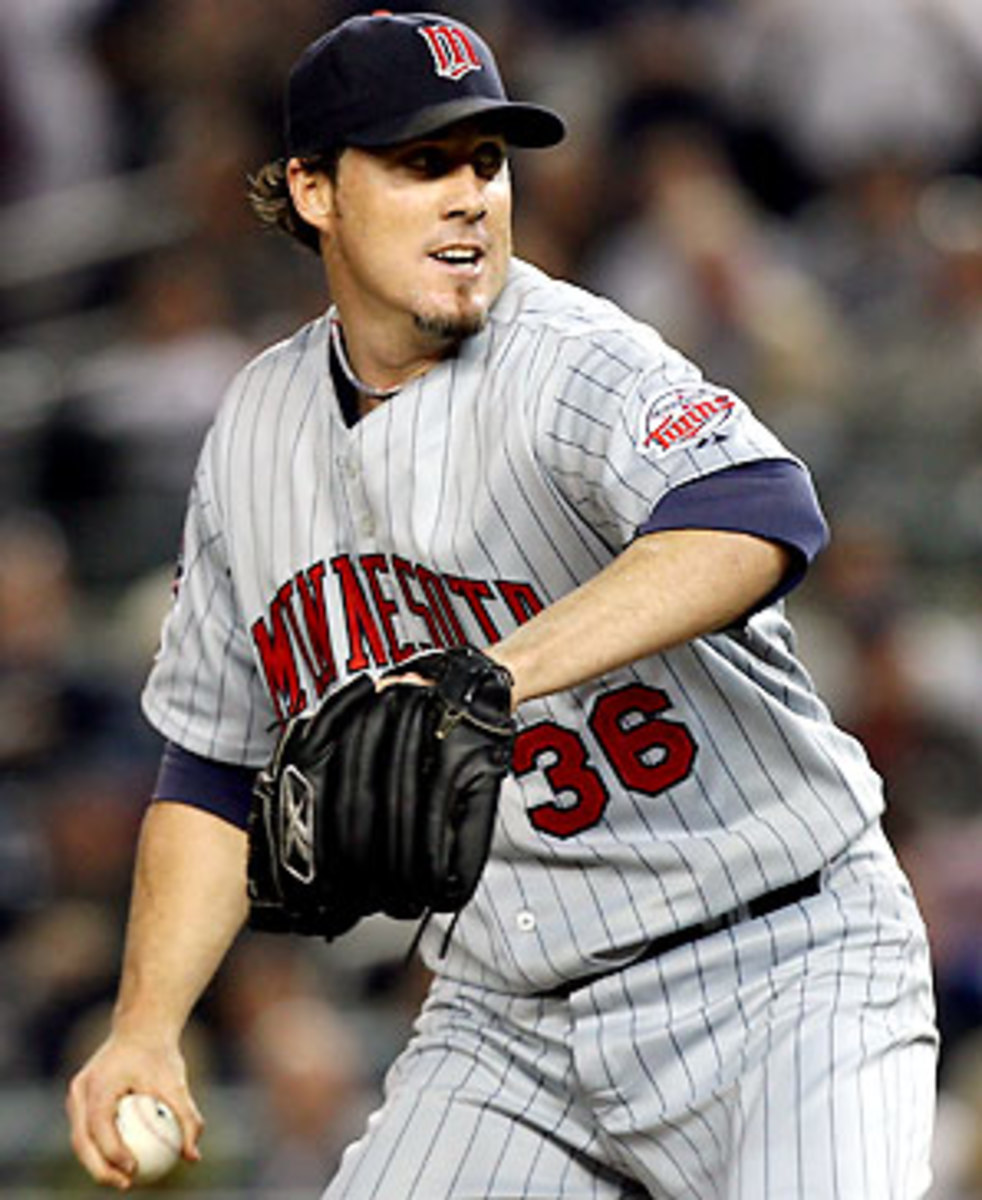Even a great closer like Nathan rarely makes a huge difference


Joe Nathan was diagnosed on Tuesday with a significant tear in the ulnar collateral ligament in his right elbow. The injury, which could put Nathan out for the year if surgery is required, appears to be a crushing blow to the Minnesota Twins franchise.
Nathan has been perhaps baseball's most underrated closer since taking over the job in 2004. In fact, you can make a pretty good case for Nathan as the best closer of all-time. In the six years since taking over as the Twins' relief ace, all he has done is post a 1.81 ERA and rack up 246 saves. His numbers stand up to any other reliever's best six-year span in the history of the game. The current crop of Hall of Fame closers -- Rollie Fingers (2.59 ERA, 156 SV), Bruce Sutter (2.47 ERA, 184 SV), Dennis Eckersley (2.18 ERA, 236 SV), and Goose Gossage (1.96 ERA, 154 SV) -- all pale in comparison. And Nathan's numbers even stack up well against the widely acknowledged all-time greatest, Mariano Rivera, who posted a 1.93 ERA and 248 saves at his peak from 2001 through 2006.
Nathan was also a key to the Twins' postseason run last season, and Minnesota needed every last one of his 47 saves. Conventional wisdom says that the Twins, with no obvious closer waiting in the wings, will be in deep trouble without their relief ace. After all, every would-be contender needs at least an adequate closer, right?
Well, they'll probably be able to find one. Last year eight teams -- the Rays, Blue Jays, Mariners, A's, Braves, Marlins, Nationals and Cardinals -- all left camp with a closer who went on to save very few games for them. Whether due to injury or ineffectiveness, these teams' closers went down early and left their clubs looking in-house for that ever-elusive bullpen ace. How did the motley crew of replacement closers do? Pretty darn well. J.P. Howell, Jason Frasor, David Aardsma, Andrew Bailey, Rafael Soriano, Mike MacDougal and Ryan Franklin may not have been the biggest names in baseball, but they got the job done. Combined they pitched 535 innings and compiled a 2.75 ERA -- generally outstanding work. Five of those eight teams won 84 games or more, and one (St. Louis) won a division title. While looking at the 2009 season alone isn't proof, it does show that teams without big-name closers can usually find someone to do the job adequately well.
The Twins had Matt Guerrier and Jose Mijares pitch very well in relief during the 2009 season, putting up ERA's of 2.36 and 2.34, respectively. While they probably won't repeat those numbers, they are viable options to replace an injured Nathan. Minnesota also has Jon Rauch and Pat Neshek as viable options. Each of these four pitchers are fairly interchangeable, with all of their ERA's projected to be in the mid-3.00's. You may say that closing is a whole different ball game than regular relief pitching, but David Aardsma, Ryan Franklin and most of the guys on the above list hadn't had much closing experience either, and they did just fine. They won't likely pitch like Joe Nathan of course, but nobody can.
The Twins will most likely be replacing Nathan and his 1.80 ERA with a guy whose ERA is 1.5 to 2 runs higher. Whereas Nathan would likely allow just 14 runs in his customary 70 innings of work, his replacement will probably allow nearly double that amount. When you factor in that the closer's innings are worth about 70-percent more than regular innings because of the highly important situations in which they pitch, the number of effective runs given away due to Nathan's absence is about 22. Add in the fact that the Twins' other relievers will now be pitching in more important roles and the math says that the overall impact of the Nathan injury is about 30 runs, translating to about three wins.
Three wins. Losing a closer -- even one of the greatest of all time -- simply isn't terribly costly. Don't get me wrong, three wins is nothing to sneeze at, and teams pay big money for that kind of production, but in the end even the mighty Nathan is worth only a handful of games. Losing the best closer in baseball may feel like a huge blow to Twins fans, but the reality is that his absence won't dramatically change the course of Minnesota's season. If the Twins finish .500 this year, it probably won't be accurate for fans to say, "If only we had Nathan, we could have been contenders." Likewise, if you thought the Twins would be great before the injury, the loss won't prevent Minnesota from still being a very good ball club.
The real impact of Nathan's injury -- if he does indeed require season-ending surgery -- will only occur if the Twins are once again on the cusp of making the playoffs. If so, his absence could be enough to cause Minnesota to narrowly miss the postseason. Various experts have the Twins picked to finish around .500 this season, although with no clear leader in the AL Central, one could easily see the White Sox, Indians, Tigers or Twins all having a legitimate chance at winning the division. What ends up happening in the AL Central this year depends on a ton of unknown factors. It's true that the loss of Nathan is a blow to the Twins' chances, but in the big picture Minnesota's championship hopes will rest far more on the performance of the other 24 players in the clubhouse than on whether or not Joe Nathan is healthy.
